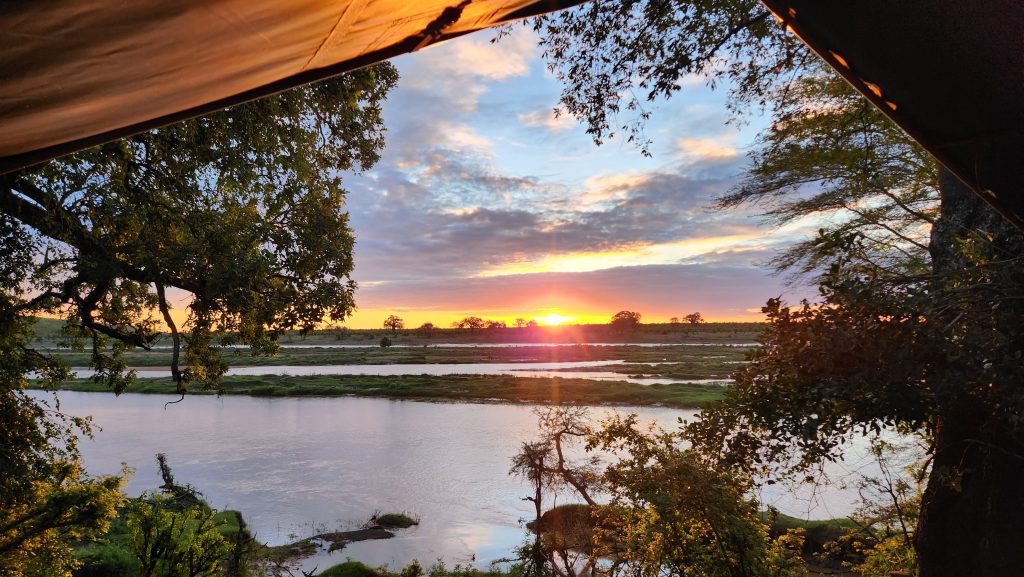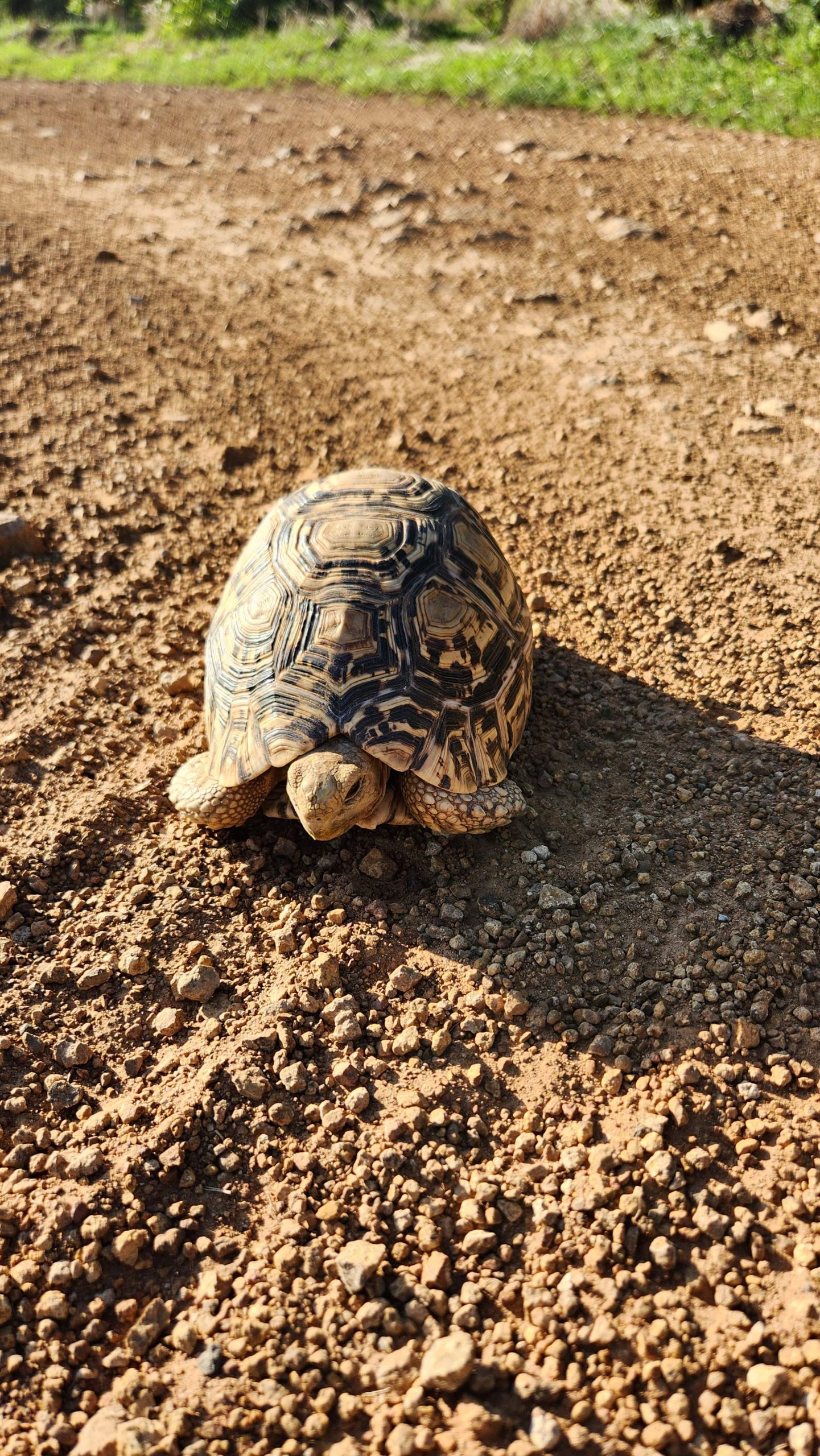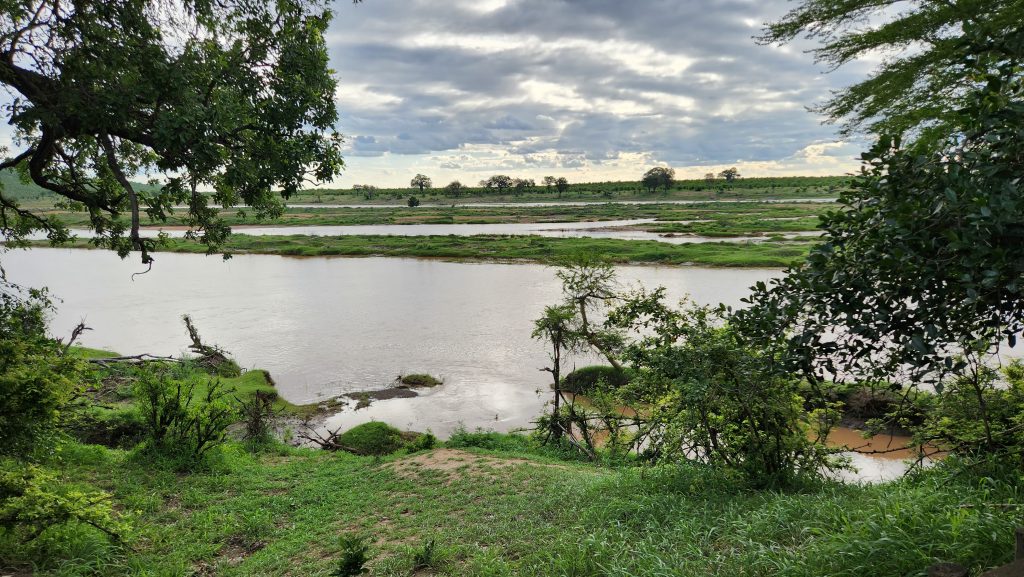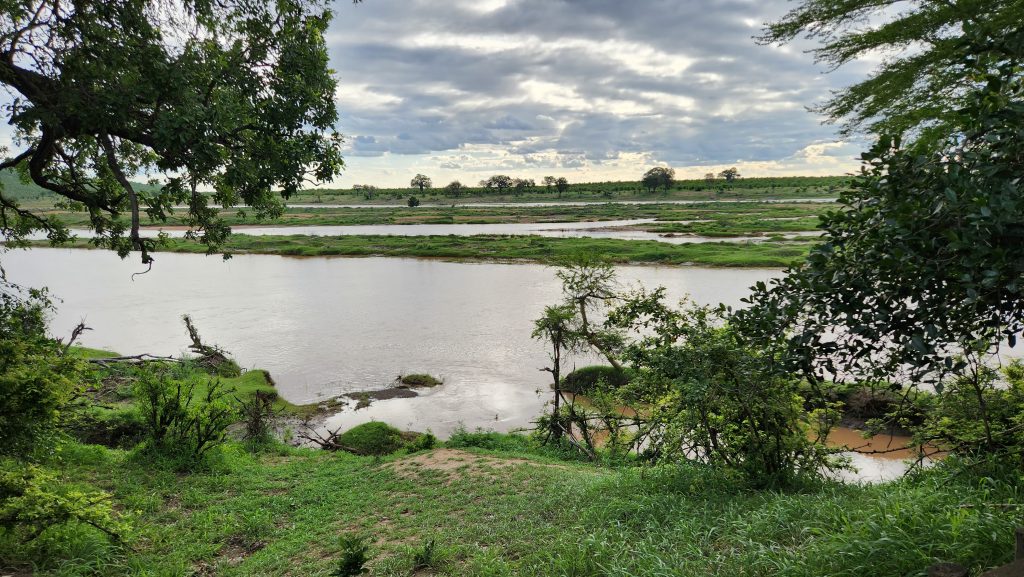Article Mike Garden
In my latest escapade, I chose to shed the façade of urban opulence and ventured southward to the untamed expanses of Gonarezhou National Park. Nestled in the northern reaches of the park are two distinct tented camps that are run under a Conservation Partnership between the Zimbabwe Parks and Wildlife Management Authority and the Frankfurt Zoological Society. The two I visited are namely Chipinda Pools camp and Chipali tented camp. Chipinda Pools camp is located just 10 minutes from the Chipinda Pools entrance, while Chipali tented camp, a recently unveiled camp is 35 kilometres northwards. Affordably priced at just USD 90 per night for each tent, my sojourn included two nights at both locations, culminating in a soothing overnight stay at the cosy Chilo Lodge.
The Frankfurt Zoological Society has been instrumental in enhancing the park’s offerings, making the lengthy journey from Harare worthwhile for those seeking to lose themselves in the wilderness. Gonarezhou also features a variety of secluded camping sites, complete with hygienic ablution facilities for the intrepid who prefer to pitch their tents amidst nature. Vegetation in the park is predominantly a mix of Mopani woodland and the hardy Ironwood (Androstachys johnsonii), which, during my visit, were adorned with a verdant cloak of leaves. Despite December’s reputation as an off-peak season for game viewing, the park was teeming with an array of plains game, elephants, and to my delight, giraffes near the entrance, affirming Gonarezhou’s status as a wildlife sanctuary.

The park, which spans an impressive 5,053 square kilometres, is the second-largest in Zimbabwe and forms part of the Great Limpopo Transfrontier Park—a peace park that links Gonarezhou with South Africa’s Kruger National Park and Mozambique’s Limpopo National Park. This colossal wildlife haven is a testament to conservation efforts that transcend borders, allowing animals to roam freely across a larger, protected ecosystem.
Chipinda Pools tented camp was my first stop. Its location offers a serene retreat by the perennial waters of the Runde River, a life-giving artery where a rich tapestry of mammalian life and avian species gather to satiate their thirst. The accommodation here is comprised of three commodious sections: a well-equipped cooking area complete with utensils, a clean bathroom, and a spacious main bedroom, all catering to the self-sufficient traveller. The camp prides itself on its eco-friendly practices, with all lighting and water heating supplied by solar power. Although divorced from the digital world within the campgrounds—internet service is reserved for the reception area some two kilometres away—the disconnection encourages immersion in the natural embrace of Gonarezhou.
The ethos of a stay at Chipinda Pools is to embrace tranquillity and leisure, a place where time seems to stand still, and ‘just chilling’ becomes the order of the day. Accompanying me were my trusty companions—books, including the thought-provoking “The Silent Patient” and Jane Harper’s thrilling “The Lost Man,” set in the remote Australian outback.
Gonarezhou was an uncharted territory for me, and I was struck by its unblemished condition—a stark contrast to the more frequented Mana Pools and Hwange National Parks, where luxury camps are commonplace. A noteworthy highlight was the Chibilila Falls, a mere 20-minute drive from the park’s entrance, offering a breathtaking display as the Runde River cascades over a series of precipices. Fortuitously, I had the foresight to download the Sasol Birds app before my journey, which enriched my experience as I observed a juvenile Brown Snake Eagle, perched atop a lifeless leadwood tree, valiantly fending off the aggressive advances of a pair of Fork-tailed Drongos.
Gonarezhou means “Place of many Elephants,” and the park lives up to its name. These gentle giants are among the park’s most notable residents, with herds are often seen wandering through the diverse landscapes that range from Lowveld scrub to towering baobabs and dense forests along riverbanks. The Chilojo Cliffs, composed of red sandstone, stand as a natural monument, offering a panoramic backdrop that is as dramatic as it is awe-inspiring.
For bird enthusiasts, Gonarezhou is a paradise, home to over 400 bird species. The park’s varied habitats provide the perfect sanctuary for both resident and migratory birds, making it an excellent destination for birdwatching year-round. The Sasol Birds app proved invaluable in identifying and learning about the diverse species encountered, from the iconic Fish Eagle’s haunting call to the vibrant plumage of the Lilac-breasted Roller.
Visitors to Gonarezhou can also indulge in guided walks, game drives, and even canoeing trips along the Save River, providing an intimate encounter with the park’s wild inhabitants. Each activity can be led by experienced guides who share their vast knowledge of the local flora and fauna, enriching the experience and deepening the connection with this untamed land. I chose to self drive around the park with use of the map sold at the reception.

The Frankfurt Zoological Society
The Frankfurt Zoological Society (FZS), an international conservation organisation based in Germany, deserves a special mention for their unwavering commitment to Gonarezhou National Park. Since the late 1950s, FZS has been actively involved in wildlife conservation and ecosystem preservation across the globe, with Gonarezhou being one of its key project sites in Africa.
FZS’s involvement in Gonarezhou has been multifaceted, focusing on both ecological and community-based initiatives. Their dedication to the park has been instrumental in the implementation of sustainable conservation strategies that benefit both the wildlife and the local communities who live on the peripheries of this vast wilderness.

One of the most significant contributions of the Frankfurt Zoological Society has been their support in the establishment and ongoing development of the Gonarezhou Conservation Trust. This Trust represents a partnership between the Zimbabwe Parks and Wildlife Management Authority and FZS, aimed at managing Gonarezhou for the long-term benefit of biodiversity and the people of Zimbabwe. The Society’s partnership approach ensures that conservation efforts in the park are robust and that they factor in the socio-economic context of the region.
Through their work, FZS has helped to enhance anti-poaching measures within Gonarezhou, an effort that has seen a notable decrease in illegal wildlife activities. These measures include supporting and training park rangers, deploying cutting-edge technology for surveillance and monitoring, and engaging local communities in conservation education and alternative livelihood projects that reduce the pressure on the park’s natural resources.
Additionally, FZS has been deeply involved in wildlife research and monitoring within Gonarezhou. Their research has provided crucial data on various species, their habits, and their habitats, which in turn informs effective management plans for the park. This scientific approach has helped to maintain the ecological integrity of Gonarezhou and to ensure the protection of its diverse fauna and flora.
The Society has also been a key player in the development of eco-tourism within Gonarezhou. By promoting responsible and sustainable tourism, FZS has contributed to the park’s infrastructure, developing visitor facilities that blend harmoniously with the environment while providing an authentic wilderness experience. This not only enhances the visitor experience but also generates revenue that is reinvested into conservation activities. FZS works tirelessly behind the scenes, their passion for preserving our planet’s wild places is a crucial component in the global effort to maintain biodiversity and natural heritage. Gonarezhou, with the support of FZS, stands as a beacon of hope and a model for conservation efforts worldwide.

